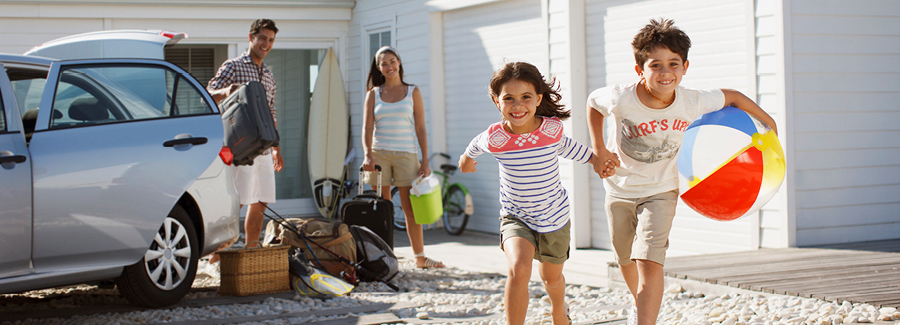Consumer Content
What to Consider Before Buying a Second Home

Want to buy a second home? Learn what to look at to decide if you’re ready.
Remember when you used to wonder if you’d ever afford to move out of your parents’ house? Now, the kids are growing up, you just got that promotion you’ve worked for, and you’re wondering if you should buy a second home. It could be nice to have your own place at your favorite vacation spot rather than renting every summer. Or maybe the thought of buying a place to rent out for the short term and then moving into it full time after retirement appeals to you. Real estate always seems like a good investment, right?
It’s great to be able to dream about owning a second home, but how do you know when it is time to make that dream a reality? Like any other big financial decision, you need to start by gathering information that will help you decide when the next step is right for you.
Understand Your Goals for That Second Home
Are you looking for an investment property, a holiday escape, or a secondary residence? It’s important to be clear on your goals before calling the real estate agent, because one property cannot be all things to all people. That’s why you should understand how the second home could impact your family.
It’s important to be clear on your goals before calling the real estate agent, because one property cannot be all things to all people.
For example, buying your dream beach house may limit your ability to travel to the mountains for your annual Christmas skiing holiday. Your plans to rent out your vacation house could interfere with other family members’ ideas of using it for impromptu escapes throughout the year. You might want to have a family meeting to discuss the idea of a second home so you can be clear on what you are looking for before you start shopping.
Calculating How Much Home You Can Afford
Next, understand just how much house you can afford. You can start with the standard one-third rule: your housing costs should equal no more than 30% of your income. If you still pay a mortgage on your current house, figure that into your overall housing costs.
You may remember when you bought your current house that the amount of the down payment made a significant difference on the terms of your mortgage. Consider how much money you have for a down payment and where that cash could come from: equity in your current home, end-of-year bonus from work, or an unexpected inheritance. Aim for at least a 20% down payment on your second home.
Review your budget and credit report to be sure you are making a sound financial decision to buy a second home. To get a mortgage for a second home, your debt-to-income ratio should be 36% or less. If you are paying off a car loan or some credit card debt, that may affect your ability to take on a new mortgage.
A high debt-to-income ratio could be an indication that you are not ready to purchase a second home. You might need to consolidate some high-interest debt with a home equity line of credit (HELOC) and revisit your idea to buy a second home next year.
In addition, while deciding about purchasing a second home, be sure you are still able to:
- Save for retirement
- Keep emergency fund savings in place
- Stay out of credit card debt
Tax Implications of Owning a Second Home
For tax purposes, a second home can be considered a residence or a rental property; each is subject to different taxes. You may benefit from tax write-offs on your current mortgage, but owning two houses changes that picture. You should consult a tax professional before making a purchase to be sure you understand how it will affect your tax responsibilities.
Saving for the Second Home Emergency Fund
Since you already own one house, you know how important an emergency fund can be. When you buy a second home, the potential emergencies are multiplied by two. You will own two water heaters, two HVAC systems… two of everything that could break, get damaged, need repair, or need to be replaced. The good news is that you also have twice the motivation to save for that second home emergency fund.
You will need six to nine months of emergency cash in your fund to get started. This amount should be enough to cover expenses at your second home without any additional income. Your emergency fund should be able to cover monthly mortgage payments, homeowner association fees, and taxes. Most homeowners spend 1% to 2% of the value of their home on maintenance each year. Be sure to figure that amount into your savings.
Mortgaging a Second Home
Some people will tell you that if you need a mortgage to buy your second home, then you can’t afford it. This is not necessarily true. Many financially responsible people borrow money to purchase a second home. Whether you have the cash to buy that home or plan to get a mortgage, you should investigate all your financing options.
Contact your financial institution today to learn about your financing options for that second home. Shopping for real estate is even more fun when you are pre-qualified and ready to buy.